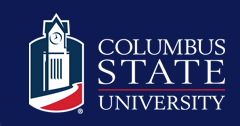Abstract
The emphasis on educational accountability and the necessity of training highly qualified administrators and leaders, prompted changes to Columbus State University’s Educational Leadership programs. Curriculum alignment was the foundation of this initiative. There has been an evolution in thinking about the important ingredients and benefits of curriculum for the 21st Century leader. Lashway (2002) advanced the idea of totally revamping the leadership preparation program to stay current with the ever-changing world. Jacobs (1997), through her work with curriculum, saw a need for obtaining course overviews. Cunningham & Cordiero (2000) envisioned futurist thinking for the practitioners and purported changing the pedagogical models to include more collaboration, technological tools, authentic learning, and problem solving. The American Association of School Administrators (1993) identified the critical elements needed for students of the 21st Century: academic content, behaviors/dispositions, and oral and written communications skills.
This is an original work
1
This work has not been previously published
1
IRB approval verification
N/A
Recommended Citation
Hall, M. C. (2006). Curriculum Alignment Matrix: A Systematic Framework for Aligning Educational Leadership Program Curriculum. Perspectives In Learning, 7 (1). Retrieved from https://csuepress.columbusstate.edu/pil/vol7/iss1/2
Included in
Curriculum and Instruction Commons, Online and Distance Education Commons, Scholarship of Teaching and Learning Commons, Teacher Education and Professional Development Commons

